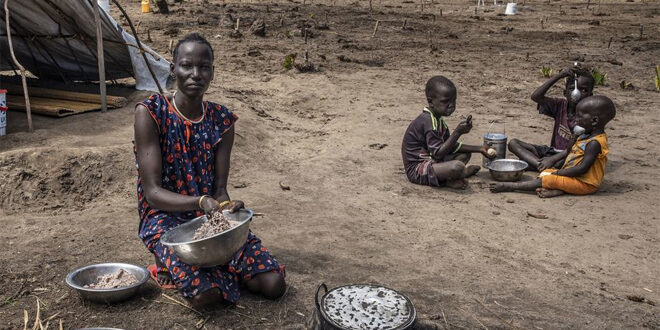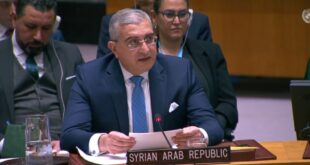New York, SANA- Around 733 million people faced hunger in 2023, equivalent to one in eleven people globally and one in five in Africa, according to the report published by five United Nations specialized agencies on the State of Food Security and Nutrition in the World
“The annual report, launched this year in the context of the G20 Global Alliance against Hunger and Poverty Task Force Ministerial Meeting in Brazil, warns that the world is falling significantly short of achieving Sustainable Development Goal (SDG) 2, Zero Hunger, by 2030. The report shows that the world has been set back 15 years, with levels of undernourishment comparable to those in 2008-2009.
Despite some progress in specific areas such as stunting and exclusive breastfeeding, an alarming number of people continue to face food insecurity and malnutrition as global hunger levels have plateaued for three consecutive years, with between 713 and 757 million people undernourished in 2023-; approximately 152 million more than in 2019 when considering the mid-range (733 million), the report explained.
According to the report, the percentage of the population facing hunger continues to rise in Africa (20.4 percent), remains stable in Asia (8.1 percent) though still representing a significant challenge as the region is home to more than half of those facing hunger worldwide.
The report highlights that access to adequate food remains elusive for billions. In 2023, around 2.33 billion people globally faced moderate or severe food insecurity, a number that has not changed significantly since the sharp upturn in 2020, amid the COVID-19.
The lack of economic access to healthy diets also remains a critical issue, affecting over one-third of the global population, the reported added.
In turn, directors and heads of the five agencies that prepared the report said that estimating the gap in financing for food security and nutrition and mobilizing innovative ways of financing to bridge it must be among our top priorities.
They added that Policies, legislation and interventions to end hunger and ensure all people have access to safe, nutritious and sufficient food and to end all forms of malnutrition need significant resource mobilization. They are not only an investment in the future, but our obligation. We strive to guarantee the right to adequate food and nutrition of current and future generations”
Manar Salameh
 Syrian Arab News Agency S A N A
Syrian Arab News Agency S A N A

